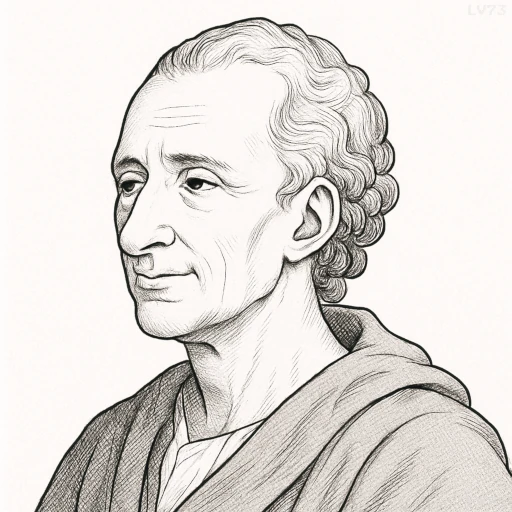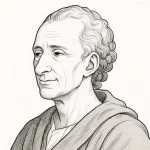“Law in general is human reason, inasmuch as it governs all the inhabitants of the earth: the political and civil laws of each nation ought to be only the particular cases in which human reason is applied.”

- January 18, 1689 – February 10, 1755
- French
- Political Philosopher, Jurist, Author of The Spirit of the Laws
table of contents
Quote
“Law in general is human reason, inasmuch as it governs all the inhabitants of the earth: the political and civil laws of each nation ought to be only the particular cases in which human reason is applied.”
Explanation
Montesquieu defines law as the extension of human reason into the governance of societies. At its highest level, law is not arbitrary—it reflects universal rational principles that aim to regulate behavior justly and consistently. When he refers to “law in general,” he means the underlying logic and fairness that should guide all legal systems across time and place, applying equally to all human beings.
From this foundation, Montesquieu argues that each nation’s specific political and civil laws are merely expressions of that universal reason, adapted to particular circumstances. In The Spirit of the Laws, he famously observed that laws should reflect the nature of the people, the geography, the economy, and the culture of a nation—but always remain rooted in rationality and justice. Thus, law is both universal in principle and local in application.
In the modern world, Montesquieu’s idea supports concepts such as human rights, constitutional law, and international justice. While legal systems may differ, they are legitimate only if they are grounded in reason, not power or prejudice. His insight reminds us that law must not be the tool of rulers or custom alone, but the practical expression of human reason aimed at the common good.
Would you like to share your impressions or related stories about this quote in the comments section?



